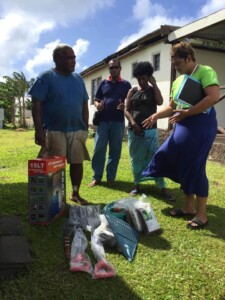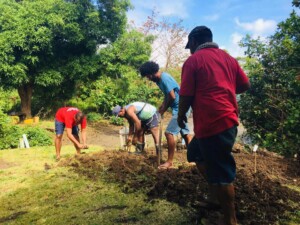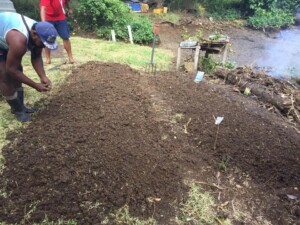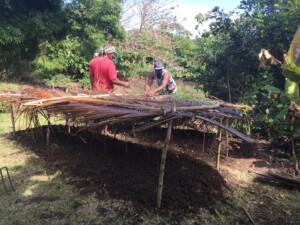Psychiatric Survivors Association pilots new livelihoods programme for members
August 17, 2020
 by Erica Lee
by Erica Lee
The global pandemic (COVID-19) has brought much hardship and struggles but it has also presented many of us with new ways of working or thinking.
“The past five months have been a learning curve for the Association and it has pushed us to really assess the way we do things and how we can better support and adapt for the future so that our members are resilient and can cope better in future situations like COVID-19,” said Sera Osbourne, the Executive Officer of the Fiji Psychiatric Survivors Association.
She added that during the COVID-19 imposed lockdown in mid March, the Association spent a considerable amount of time speaking to members over the phone, providing support and talking them through coping mechanisms to help them deal with the challenges of restricted movement during the lockdown.
“We received several calls from members experiencing anxiety, having suicidal thoughts and for some members, accessing their medication wasn’t easy so we talked them through non-medicated ways of managing their illness. Unfortunately, many of them also rely on walking, going for bus rides or meeting up with their peer support groups to share some of their monthly struggles.”
She added that families of their members were also finding it hard to take care of them financially, physically and mentally.
Sera says this prompted the Association to come up with a new programme that would help reduce the reliance of their members on medication, promote food security and be a source of income.
Through Australian Government funding (a combined additional grant from the Australian Humanitarian Partnership, the Fiji Women’s Fund and Pacific Women Shaping Pacific Development), PSA will be piloting a livelihoods/farming project for their members. The pilot will work with 30 members in the Central and Western Division selected based on recent home visits conducted by PSA in early June to identify if they had the capabilities, garden space and family support. PSA will be provided farming tools, seeds and physical support to members to establish their own backyard gardens/farms.
According to a 2013 Mental Health Review Journal article titled Gardening as a mental health intervention[1], there is convincing evidence in support of gardening-based interventions having positive effects on mental health survivors including reduced symptoms of depression and anxiety.
“We intend to hold our member’s hands throughout the whole process. From weeding and tilling the land, planting the seeds to the harvesting process. We know that it’s not easy to just give someone seeds and to ask them to plant a vegetable garden. If we don’t help them through the process, then it could become a stressful task that they may not be able to do.”
“Gardening can be very therapeutic. It promotes physical activity, food security and healthy eating but most importantly, it will be a way for members to reduce stress, anxiety and their reliance on medication.”
Apart from the benefits that the pilot will have to members, Sera says that PSA sees the pilot as an opportunity to connect and get to know their members better.



Photo credit: Psychiatric Survivors Association
Background information on PSA
The Psychiatric Survivors Association (PSA) was formed in 2004 by a small group of people previously diagnosed with a mental illness. Since then it has focused on recruiting members developing member skills, accessing funding and creating links with other mental health stakeholders in Fiji. PSA is registered under the Charitable Trust Act for non-profit organisations and is one of four affiliates of the Fiji Disabled Peoples Federation (FDPF). Funding from the Fiji Women’s Fund to FDPF has helped the organisation and its affiliates to build their capacity in leadership and decision making. The Federation also undertakes training and awareness with the community using the Fund’s Ending Violence Against Women (EVAW) Toolkit and conducts interviews to gather information on the challenges and barriers women with disabilities experience when accessing services within their community.
[1] Clatworthy, J., Hinds, J. and M. Camic, P. (2013), “Gardening as a mental health intervention: a review”, Mental Health Review Journal, Vol. 18 No. 4, pp. 214-225. https://doi.org/10.1108/MHRJ-02-2013-0007
Recent Whats New
WFF Visit to “Rise Beyond the Reef”
December 12 2023
LifeBread Confident Woman Program Graduation
December 12 2023
